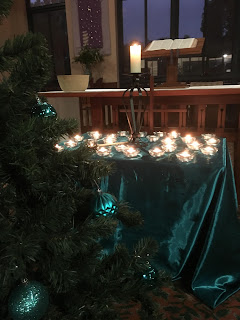Today is the United Nations International Day of the Girl Child. There is a particular focus on adolescent girls and their ability to change the world for better if given the chance. This theme presents itself to me at an opportune time. Recently, I have been reflecting on my own adolescent years and watching my own children go through this turbulent time.
I spent most of my adolescent years at a private high school. In those days, it was considered a low fee private school. It didn't have all the bells and whistles of other prestigious colleges, but certainly had a lot of heart and a great reputation for decent pastoral care. Before leaving primary school, I had already well established my place in the whole social web. I had no enemies (that I knew of), was friends with everyone, but found my social niche kicking the footy with a small bunch of guys on the oval. To begin with, they were cautious, not sure if they could tackle me for the mark and running in close for the short kicks I would inevitably execute. But soon, I became one of them and gave as good as I got.
Moving to high school, I had to re-establish my friendships. I was the only student going to this relatively new school from my primary school. I had some friends from my local church to look out for and to begin with we banded together. By the end of the first year we had a large friendship group, girls and guys. I had girlfriends, but still seemed more natural and at ease around the boys. This was fine to begin with, however, it became complicated as we got older and the boundaries in relationships started to change.
As a teenager, I was very vocal about the fact that I really disliked being female. I may have even used the word 'hate', which seems far too strong now. At my school, the girls wore dresses or skirts. This was not my usual choice of attire and I worked very hard to develop the necessary lady-like ways to accompany the uniform. I recall, at one time, being informed by a staff member that my 'natural and easy way of being around the boys' might be misinterpreted. This confused me at the time. In hindsight, what I hated about being a girl was the fact that I could not live it out the way that was natural for me. There seemed to be an expected mould, and I certainly didn't fit into it. Being an adolescent girl, for me, was awkward, uncomfortable, tedious and a tad lonely.
I am now watching on, anxiously, as my daughter goes through that same
period of her life. Of course, all of my fears and concerns are projections of my own experiences, but I really needn't worry. She is a different person to me and she is growing up in a different generation. My daughter is a dancer and, I must admit, this did concern me when she was younger. I wondered if she too would develop with certain ideals about how a young woman should look, act and be. My fears have been allayed. I believe that her love of dancing has fostered some very healthy attributes. She is resilient, comfortable in her own skin, able to have a laugh at herself, confident and perseveres. She has a 'can do' attitude, a wholesome dose of self esteem and a love for life. She is a real natural beauty with no need for false facades, but can put on the eyelashes and costumes to shine on stage.
Perhaps, on the International Day of the Girl Child, my commitment needs to be to encourage each young girl I have the privilege of spending time with to be the best version of themselves possible. Being true to yourself is a gift, not only to oneself, but to everyone around you. Being a teenager is hard enough as it is, without trying to be someone you are not. So, lets give our adolescent girls a gift today of allowing them to be the amazingly diverse young women they are.
 Over the last few months, there have been a few "lasts", aspects of my ministry that I won't be involved in again. None had brought the same feelings that arose as I put the blue baubles in the box, not sure if they would be used next year. Fortunately, the drive from Augusta home is long enough to reflect and wind down before launching back into family life.
Over the last few months, there have been a few "lasts", aspects of my ministry that I won't be involved in again. None had brought the same feelings that arose as I put the blue baubles in the box, not sure if they would be used next year. Fortunately, the drive from Augusta home is long enough to reflect and wind down before launching back into family life.















